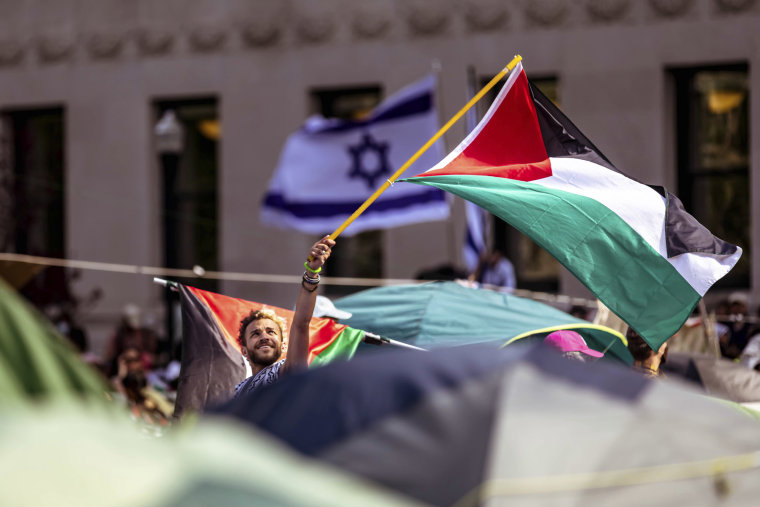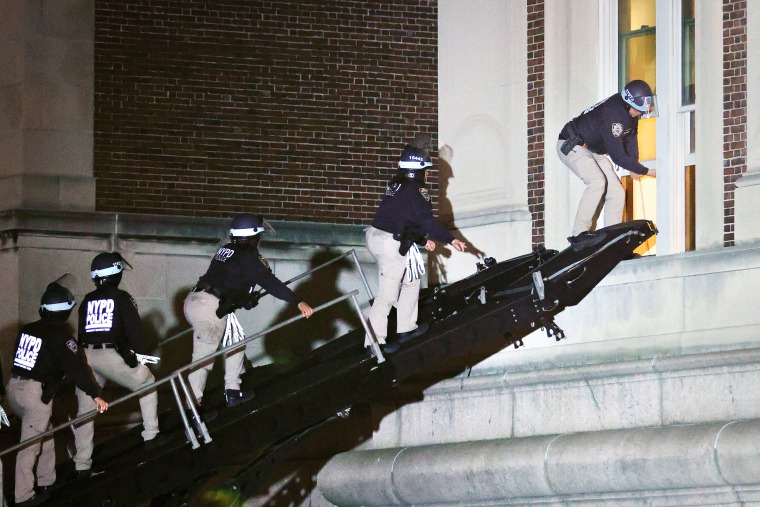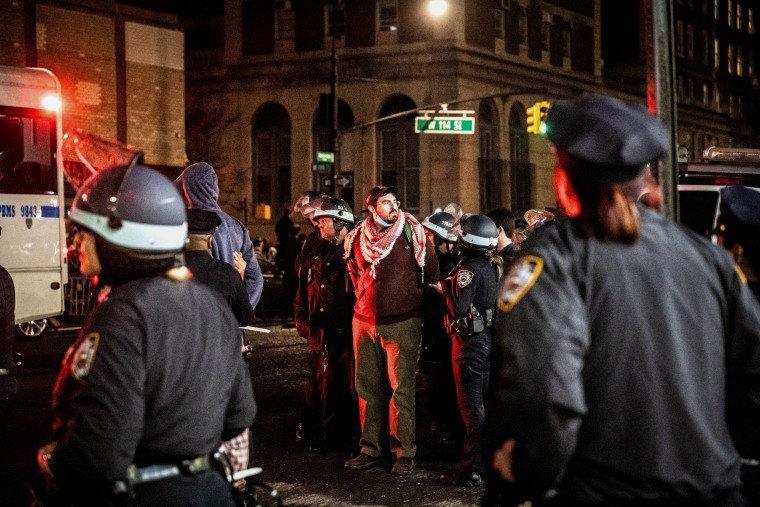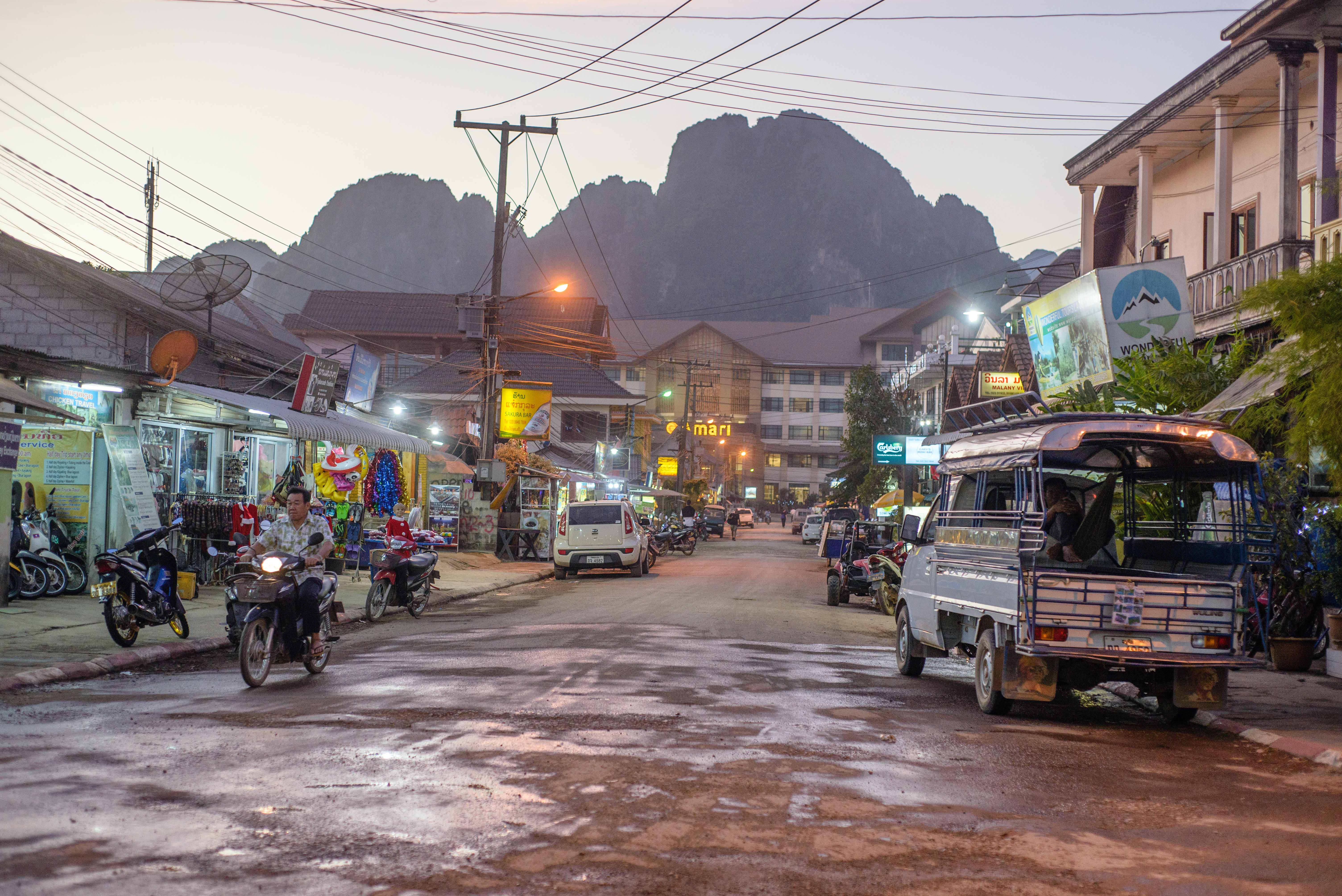
According to NBC News, Columbia University is rethinking its commencement plans after weeks of pro-Palestinian protests ended with authorities forcing their way into a barricaded school building and arresting dozens of people, according to a source at the university and two members of student government.
The source at the university said the main commencement ceremony was slated to be canceled, but smaller events were still being planned.
After a meeting with top university leaders Friday, two members of student government said administrators indicated they are not sure they can hold a commencement ceremony on the main Morningside Heights campus in Manhattan because of security concerns.
It is unclear if final decisions have been made.
Get top local stories in San Diego delivered to you every morning. Sign up for NBC San Diego's News Headlines newsletter.
“We know that our students and their loved ones are wondering about plans for University Commencement and school Class Days. Offices across Columbia are committed to ensuring that all ceremonies run smoothly and that all our students and their families and friends get the celebration they deserve,” a spokesperson for Columbia said in a statement when asked for comment about commencement plans. “We will share more information about preparations that are underway soon.”
One of the student government representatives who was in the meeting said Columbia’s administration is primarily concerned about outside protesters and is struggling to find an alternative venue.
The students told the university leaders that many in the student body are concerned about President Minouche Shafik speaking at the ceremony. “Her presence would be the cause of a lot of upset,” one of the student leaders told NBC News.
U.S. & World

Other students are worried about the expense of staying on campus until May 15, when commencement is scheduled to happen, only to find out that it has been canceled.
An estimated 15,000 students are planning to graduate in separate outdoor ceremonies May 15. Commencement at the Ivy League school is a venerable tradition dating to 1758, when the school was known as King’s College. Each school within Columbia has also typically held its own individual graduation ceremonies.
One member of the faculty said some faculty and staff at Columbia and Barnard are planning to attend an alternative graduation ceremony on May 16. Another member involved in planning said the counter-graduation will be inspired by the counter-commencement held in 1968.
Protests at Columbia’s upper Manhattan campus erupted April 17 when students pitched about 50 tents while demanding a cease-fire in Gaza and insisting the university divest from companies that they say could be profiting from the war.

Authorities cleared out the protesters, but they returned — and encampments quickly appeared at college campuses across the country.
At Columbia, school administrators asked New York City police officers for help after protesters — including people identified by city officials as “professional outside agitators” — occupied an on-campus building early Tuesday and barricaded themselves inside.
On Tuesday night, police in riot gear descended on the school around 9 p.m. and entered the occupied Hamilton Hall through a second-floor window. Nearly 100 people were arrested, authorities said, including 40 who were on the barricaded building’s first floor.
The arrests have shaken confidence in Shafik among some students and faculty at Columbia. In a letter to the New York Police Department asking for its assistance to clear Hamilton Hall, the university president said the occupation there “left us no choice.”
In its request for police assistance, Columbia asked the NYPD to stay on campus until at least May 17, two days after commencement.

A Columbia spokesman had warned students that they faced suspension if they did not dissolve an encampment that had grown on the campus’ West Lawn ahead of the end of the academic year, and that if they were seniors they would be ineligible to graduate.
“Disruptions on campus have created a threatening environment for many,” spokesman Ben Chang had said, adding that the steps the school was taking were “about responding to the actions of the protesters, not their cause.”
As campus unrest roils other schools, including with police intervention and arrests, Columbia’s dilemma — whether to hold a commencement ceremony but with major safety concerns or cancel it altogether — is one other colleges have faced.
Last month, the University of Southern California in Los Angeles said it was canceling its main commencement ceremony, scheduled for May 10, that was set to include a keynote address from alumnus Jon M. Chu, the director of “Crazy Rich Asians,” and a presentation of honorary degrees to tennis star Billie Jean King and others.
The school had already canceled a commencement speech by a Muslim valedictorian following controversy over her social media posts about Israel’s war in Gaza. But USC said it would still host individual school commencement ceremonies and other related events.
Erik Ortiz, Rebecca Cohen and Tim Stelloh contributed.
This story first appeared on NBCNews.com. More from NBC News:



